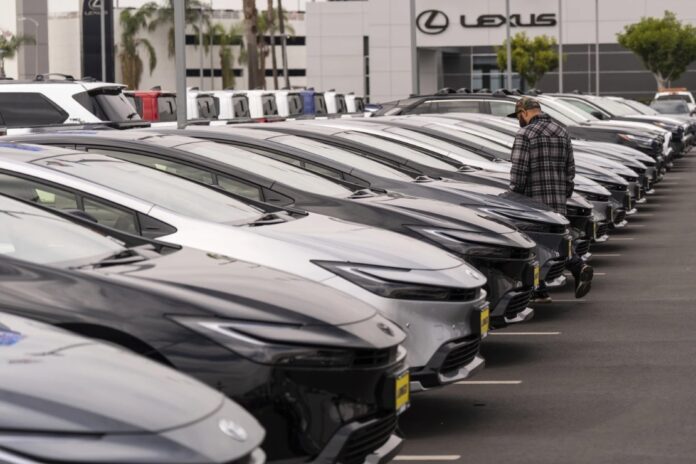Overview: What Trump’s “Liberation Day” Tariffs Could Mean for You
• Trump plans new tariffs starting Wednesday, calling it “Liberation Day” meant to reduce U.S. reliance on foreign goods.
• Higher costs could hit U.S. families—everything from cars to groceries and homes may get more expensive.
• Trump argues tariffs will boost American-made products, but economists say the move could slow growth and hurt jobs.
• Other countries are already planning to fight back, warning the tariffs will damage the global economy.
• Despite the risks, Trump sees tariffs as a tool for respect and leverage—not just a tax, but a statement.
On Wednesday, former President Donald Trump is expected to announce new tariffs he calls part of “Liberation Day,” aimed at cutting back America’s reliance on foreign goods. While he says this will help bring jobs and wealth back, most experts warn it could hurt everyday Americans.
What’s He Planning?
Trump wants to slap new import taxes on countries like the EU, Brazil, South Korea, and India. That includes a 25% tariff on cars, copper, lumber, and even pharmaceuticals. He’s also targeting oil from Venezuela and goods from China due to fentanyl production. Tariffs from 2018 on steel and aluminum will also expand.
Trump believes these tariffs will lead companies to invest in the U.S. and produce goods domestically. He even said he’s fine with rising car prices—because he thinks Americans will buy more U.S.-made vehicles instead.
How Will This Affect You?
Experts say tariffs will likely raise prices on many goods, from groceries to homes. The added costs are usually passed down to the consumer. For example:
• Cars could cost nearly $5,000 more.
• A new home might be $21,000 more expensive.
• Slower economic growth is expected—possibly as low as 0.6% this quarter.
Some in Trump’s circle argue the tariffs are a short-term fix or a way to make deals. But economists warn that if other countries hit back with their own tariffs, prices could rise even more and affect jobs.
How Are Other Countries Responding?
World leaders aren’t happy.
• Canada says its relationship with the U.S. has taken a hit and has already responded with tariffs.
• France says Trump’s move breaks supply chains and hurts jobs.
• Mexico is being cautious but says it must protect its workers.
• China warns that no one wins in a trade war and that the tariffs won’t solve U.S. economic problems.
Why Call It ‘Liberation Day’?
Trump has used the term “Liberation Day” multiple times—for his inauguration, Election Day, and now for his tariffs. He sees tariffs as part of America’s path to self-reliance. But many experts say it’s more likely to trigger inflation, retaliation, and economic pain.
As Phillip Braun, a finance professor, put it: “I don’t see anything positive about Liberation Day. It’s going to hurt the U.S. economy.”








